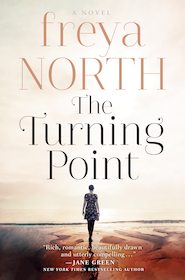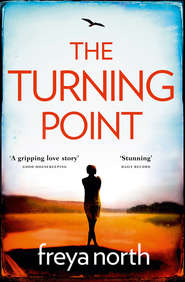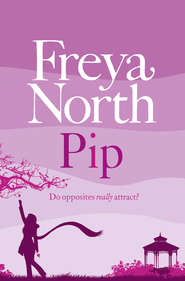По всем вопросам обращайтесь на: info@litportal.ru
(©) 2003-2024.
✖
Chances
Автор
Год написания книги
2018
Настройки чтения
Размер шрифта
Высота строк
Поля
‘She’s a thief, that’s what she is,’ Tim says. ‘Watch her like a hawk.’ He had caught the woman shoplifting last Easter. A small papier mâché rabbit. Not expensive – but a key seller at a time when they were shifting loads. He’d made her put it back. He’d done it tactfully and authoritatively. As though he was talking to a child. Vita hadn’t liked that at all. It was just a little Easter bunny.
She won’t be doing that again, he’d said to Vita.
Just now, Vita muses how it wouldn’t cross Tim’s mind that the old lady had been doing precisely that, on a regular basis, ever since. With Vita’s unspoken blessing.
She glances at Tim. Experiences a pang. Wonders how that could be, after so long. After everything.
‘Hey, Tim.’ It isn’t a question and, though she says it softly, she knows she shouldn’t have said it at all. He just looks at her. There’s nothing behind his eyes. It’s the neutrality that hurts the most.
When did he buy that new shirt? It suits him, it suits his dark grey eyes, his close-cropped hair the colour of slate.
‘Be in touch,’ he says as he leaves.
He doesn’t look back.
Tim is someone who never looks back.
Six years together, now heading towards a year since she left him. Vita looks at her watch and reprimands herself for having spent a daft amount of time lost in pointless reflection. She could have been reading. Or tidying. Or engaging with customers. Now look at the time. Sorry, Robinson, school’s out and the kids will soon descend, with their exasperated mums killing time to interrupt the drag of the remainder of the day. It’s Monday, though, and good for trade usually, on account of pocket money left over from the weekend.
She slips off the stool and goes to the store cupboard at the back of the shop, which is only slightly larger than the loo. She takes out a plastic antelope and a couple of other items and carries them back into the shop. Then she writes herself a Post-it note, sticking it next to the hook on which her jacket is hanging.
Order gorillas and lions.
Think Robinson, not Tim.
Oliver and Jonty
Oliver was washing up. He’d spilled water on himself and on the floor. His shirt had been clean and now the floor was dirty. The water was too hot and his hands were red. He needed a new washing-up sponge. There was no more room on the draining board. He’d used too much Fairy but as he still hadn’t fixed the cold tap it meant the water spurted everywhere each time he rinsed something. To the right of him, the dishwasher stood empty. Top-of-the-range, still under its extended guarantee. Unused for nearly three years. His wife had loved that appliance more than any of the others.
‘I could live without TV,’ she’d said, ‘I don’t mind laundrettes. But the dishwasher? I’d sell myself, rather than part with it – it’s the apotheosis of modern invention.’
He thought about that now; how only DeeDee could refer to something as dull as a dishwasher as the Apotheosis of Modern Invention. He thought about how she liked to say she didn’t have ‘hands that do dishes’. Not from any pomposity but because her hands really had been slender and soft – pale, silky, protected. She rubbed cream in as though it was a ritual. Tubes of the stuff remained. They were still there, on windowsill and bedside table, by the basin, by the phone near the front door. Some were scented with lavender, some with rose. Some were formulated for Norwegian fishermen. One was for babies’ bottoms. It was called Butt Butter. Her cousin in the States used to send it at regular intervals. This was the last tub. Oliver looked at his hands, redder by the minute. He should have taken his watch off.
Of all the things to miss, it was the simple sight of a meticulously stacked dishwasher he longed for most these days. And yet, it had been one thing that had wound them both up at the time. DeeDee hated him stacking it because she said he didn’t do it properly. She’d physically shove him out of the way, complaining how he didn’t maximize space the way she did, even accusing him of doing this on purpose (which was true). He’d hated her tutting and huffs and the exasperation written all over her face. It had made him sling stuff in on purpose. Put a mug in the wrong way up so that it filled with the sedimenty water. How ridiculous had that been? Both of them. Life’s way too short to fall out over a stupid dishwasher.
He’d called her a fucking control freak once. She’d gone stony cold and had said, I’m doing it for us – it’s the way I keep our home and if you want to make a mockery of that you can fuck off yourself. He’d said, Stop being so bloody melodramatic. Jonty, who had been about eight or nine, had said, What’s melon-traumatic? And she’d said, Mel-o-dramatic, darling, it’s nothing, just a silly word for a silly thing. So gently, so sweetly, so patiently that this had wound up Oliver even more. He’d stropped off to the pub. And later, when guilt had made him leave before closing time and he’d returned and unloaded the dishwasher, he’d had to concede how well she’d restacked it. One beer too many had made him annoyed that she could be right over something so trivial, exasperated that her natural fastidiousness, the high standards she placed on family and home and perfection, necessitated this crazy rigidity to maintain them.
That night long ago – when was it? – if Jonty had been nine-ish, it must have been a good five years ago. The dishwasher before this one. That night, back then, Oliver had slept in the spare room. And DeeDee had crept in during the small hours. And they’d shuffled closer and closer together, cuddling and kissing and pressing and offering silent apologies. Jonty had gone into their empty bedroom in the morning and wondered whether aliens had abducted his parents.
DeeDee would die if she saw the state of the house now. Or, rather, she’d die again.
Today, Oliver can still feel the muddle of conflicting emotions – like washing up with water so hot it feels cold. He likes to justify that, these days, it’s environmentally irresponsible to use a dishwasher. Especially since there’s only him and Jonty. And mostly they eat takeaways direct from the tubs. And the food they cook at other times rarely requires many utensils. Just plates, really, for pizza or cold cuts or beans on toast. They often don’t bother with knives. They use their forks – to spear, to scoop, to sever. They go through an industrial quantity of teaspoons each day.
‘Remember how Mum used to always lay the table? Including a spoon for pudding even though she invariably said, Help yourselves to fresh fruit?’
‘Yeah,’ says Jonty.
But his father can’t tell what his son’s eyes are saying behind that lank curtain of dye-dark hair. It is one of those moments when Oliver considers how a teenager’s hair can hide a child’s eyes. And he is not sure what he’s meant to do about it.
‘You can dry.’
‘There’s only about two plates and a hundred forks, Dad. Let it all drain.’
His son is on his way out of the kitchen, to flick on the TV in front of which he’ll sit with his dad, quietly watching whatever crap might be on until they’re finally tired enough for bed.
Oliver looks at the draining board.
Only two plates. And just forks. It breaks his heart all over again.
‘Cup of tea, Jont?’
Bugger. No clean mugs again. He rinses out a couple with scalding water, using his thumbs to rub away the ring marks from previous brews.
I missed you today, DeeDee.
Is it OK to tell you that there are days now, almost three years on, when I don’t know if I’ve thought about you so I remind myself to? That one day recently I merely mentioned you in passing and didn’t pause after doing so? You were in and out of the conversation in a click. I was chatting to Adrian. Your name simply slid in and out of the conversation like a bird flying past.
Now I’m going to sit beside our son and watch TV till we’re knackered. We don’t put biscuits on a plate any more, DeeDee. We just eat them from the packet. And when Mrs Blackthorne comes – because she still comes – she has a week’s worth of crumbs to deal with. Today, though – today I miss you, darling.
The Tree Houses
Where Vita lived, officially called Mill Lane, was always referred to as the Tree Houses. Not that these were eco-savvy dwellings in lofty boughs, however, but a terrace of small, plain, Victorian two-up, two-downs in red brick. Cherry Tree Cottage, Plum Tree Cottage, Walnut Tree Cottage, Damson, Apple, Hazel, Quince and Pear Tree Cottage. Apple Tree Cottage had a small, old, wizened tree in the front garden that each spring blossomed in a half-hearted manner but rarely followed through with fruit of any quality. The only blossom at Cherry Tree Cottage was garishly painted onto an elaborate name plaque. There were no eponymous trees at Walnut, Quince or Hazel. Damson Cottage had its windows and door painted the colour of the fruit but the garden itself was laid mainly to gravel. Plum Tree Cottage was by far the prettiest with roses around the front door, a lavender-bordered path and a profusion of gay bedding plants through the summer, but no plums. Pear Tree Cottage, Vita’s house, was right at the end.
When she’d been house hunting, she’d felt sorry for the cottage as one might a mangy old dog at a rescue centre.
The exterior was drab and unkempt. Inside, it was dank and forlorn. The place smelt musty, in need of air, but many of the window frames had been painted over so often they no longer opened. Though the whole house needed decorating, it was actually the old wallpaper upstairs which had sold it to Vita. It was faded, but when she looked carefully she noted how it had been pretty once. Sprigs of flowers – mauve in one room, yellow in the other. She’d been told the late owner had been a bachelor who had lived there alone for over fifty years. But she’d stood in the back bedroom quietly considering that the lonely old bachelor must have had a lady friend who had advised on the wallpaper all those years ago. That, for a while, this shabby, stale house had been a home where the rooms had been tended to not just with floral paper. At some stage, love had been in this house.
Her mother, who was insisting on giving Vita her small inheritance early, had said, Darling, isn’t that nice all-mod-cons, ten-year-guarantee new-build apartment overlooking the canal a better investment? But Vita said no. She wasn’t looking for an investment; she was looking for a home.
What had once been Tim’s house, Vita had made into their home over the four years they lived together; softening the hard edges of his statement furniture and proliferation of gadgets with a little bit of Cath Kidston here and there; making something domestic and homely of the space. But it wasn’t hers to start with. When they’d split, Tim had given her an amount of money. Initially, she was resistant to his offer – not from any sense of pride or independence but because it was so brute. It felt as though Tim was quantifying the relationship, paying her off, throwing money at a problem to make her go away.
Vita’s friends – who constituted a tight ring rather than a wide circle – let her stay in their spare rooms and marched her up and down local streets with estate agents’ particulars in her hands. That’s how she came to find herself at the Tree Houses and the down-trodden cottage right at the end of the row. The smallest of the cottages, in that no extensions had been added over the years, nor had the loft been converted, but of all the Tree Houses, Pear Tree Cottage had the biggest tree, and it was indeed a pear, dominating the back garden.
‘I don’t like that tree,’ her mother had said. ‘It looks a bit leering – like some guardian troll of the garden.’
But Vita made light of it.
‘You can make me pear upside-down cake, Mum,’ she had breezed deliberately. Her offer had been accepted, the surveyor had been round, the mortgage granted, and she desperately needed this to work. ‘Or pear and chocolate brownies. Like you used to when I was little.’
Why doesn’t she go for the canal-side flats with the gym in the basement? her friends worried behind her back.
That blimmin’ great tree, the neighbours at the Tree Houses often remarked to each other over the garden fences.
* * *
Vita thinks she really likes the house and now that it is spring, and the blossom is stunning, she thinks she’ll really like the garden too. But she keeps any ambivalence from her friends. She tells herself she doesn’t want them to worry. Nor does she want to catch them giving each other ‘that look’ – which she reads as their frustration that she’s still not quite cock-a-hoop about her new life. Their strategy is to enthuse, to encourage her and tell her that if she can work the wonders on the exterior that she has on the interior, then Pear Tree Cottage will reap dividends for her emotionally in the short term and financially in the long term too.
Her possessions are around her; it’s her linen on the bed, her books on the shelf, her Cath Kidston oilcloth on the kitchen table. Those are her brush and roller marks on the white walls, that’s her careful satinwooding on the skirting and doors that she spent weeks rubbing down. Apart from one wall of the faded wallpaper in the front bedroom upstairs, there’s no longer any hint of the previous occupant. She bought a new seat for the loo, her mother gave her some ready-made curtains and the guy who fitted out the shop put in the Ikea kitchen units as a favour.











